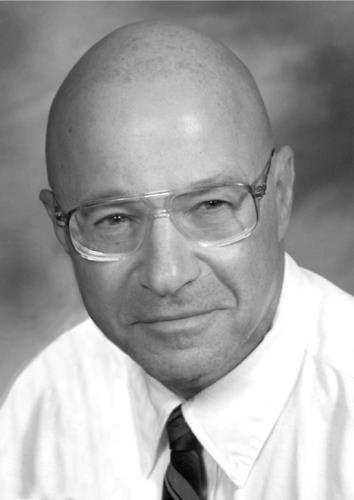It might seem strange that my major intellectual influence has been Sigmund Freud. Although I don’t place much faith in his therapeutic modality, psychoanalysis, as being any more or less effective than any other therapeutic modality, particularly since it resists empirical study and possible verification or lack of verification, what makes Freud so important, in my opinion, are the insights he drew from his analyses of the human condition and the human psyche.
One of his many insights is stated quite succinctly by him: “The ego is not master in its own house.” (A Difficulty in the Path of Psycho-Analysis, 1917.)
That is, our conscious desires and motivations, our rational processes, are trumped by our unconscious drives and longings of which we are unaware! That is, our unconscious drives and needs are the major determinants of our thoughts, prejudices, rhetoric, and actions. In other words, we do not have the control of our beliefs and actions that we think we do!
When confronting another’s prejudices, that person may, when asked, seem to come to a rational explanation for those prejudices, with appeal to assorted “scientific” and “biblical” claims yet, when push comes to shove, those reasons are mere rationalizations used by the person in order to justify in his/her mind and in the minds of the questioner(s) why those prejudices are “rational” when, in fact, they are anything but rational but emanate from the unconscious longings and repressions, the resistances and the untamed and untamable forces that reside within the unconscious of the person with whose prejudices we are dealing.
In the case of homophobia, it is eminently clear that ignorance and/or hate are the root causes of those prejudices, and that hateful animus that propels and compels one to consistently seek to demean the other, and deny equal rights to Gay people, is coming from the unconscious of that person, those tempestuous forces of which he/she is largely, if not solely, unaware.
However, the homophobe’s conscious mind must make him/her and his/her homophobia seem “reasonable” to those who ask the question as to why that person is homophobic, so there is an attempt by the homophobe to invoke “credible evidence” in his/her conscious mind, particularly the homophobe’s interpretation of certain selected biblical verses, so that credibility can be sought and often, unfortunately, irrationally obtained by gullible people to the hateful utterances made by clergy and by other professing Christians in the name of God and the Prince of Peace.
Therefore, “sitting down and reasoning together” with strident homophobes, particularly religious homophobes, is a waste of time and energy, and is bound to degenerate into profound resistance and hostility on the part of the homophobe because his/her unconscious structure and drives make it virtually impossible for rational discourse to penetrate that structure and change those drives.
So, what is the answer in dealing with homophobia? Social Psychology has provided that answer in regard to many types of xenophobia!
Attitudes can only be changed by there first being a change (even a forced change, if necessary) in one’s behavior and then, over time, one’s xenophobic attitudes will change. For example, regarding the African-American civil rights struggle, it wasn’t until certain key court decisions and mandated integration in the military, public accommodations, and in schools occurred, and when Whites and Blacks were forced to work together as equals, that White attitudes toward Blacks became much more accepting and benign.
I’m not suggesting that Black-White relations are a bowl of cherries now, and that racism still doesn’t exist! What I am suggesting is that institutional racism is far less acute than before that forced behavior change; Black-White relations are much more convivial than existed prior to that forced behavior change.
So, we don’t change attitudes to evoke a certain desired behavior, but changes in behavior eventually create a change in attitudes! Therefore, we don’t work to change the attitudes of people, such as we see with the onerous attempt to appeal to “the milk of human kindness” by many Gay activists when Gay civil rights are despicably put up for a vote of the electorate, but we force the dominant group to deal with full and equal civil rights that come from the Judiciary and then, over time, Gay people will be far more integrated into the society than now exists; full and equal civil and sacramental rights will become a reality.
I understand that there are many Gay people who do not want to be integrated into dominant society, and they should be free to ghettoize themselves if they so choose. However, I have to believe that most Gay people do want equal rights and do want to embrace all of the rights of citizenship that heterosexuals enjoy, and if that is the goal, time, activism, monies, and energy must be spent and directed at the political-judicial arenas to force behavior change on the part of the dominant group so that their homophobic attitudes will eventually change.
And, over time, the unconscious drives and fears that prompt and propel homophobia will change to become more accepting of Gay people, and then, unfortunately, another minority group will be sought after for discrimination by those whose unconscious drives force them to discriminate.
But that fact is the subject of another civil rights struggle at some future time!

Professor Emeritus of Sociology at California State University, Chico, Rev. Dr. Jerry S. Maneker served as an ordained priest in the Congregational Catholic Church, a division of the Independent Catholic Churches International (ICCI). For many years he published a weekly column in the Sacramento Valley Mirror titled “Christianity and Society” where he dealt with a variety of social issues from a biblical and sociological perspective. He also published a blog called A Christian Voice for Gay, Lesbian, Bisexual and Transgender Rights and the website Radical Christianity.
